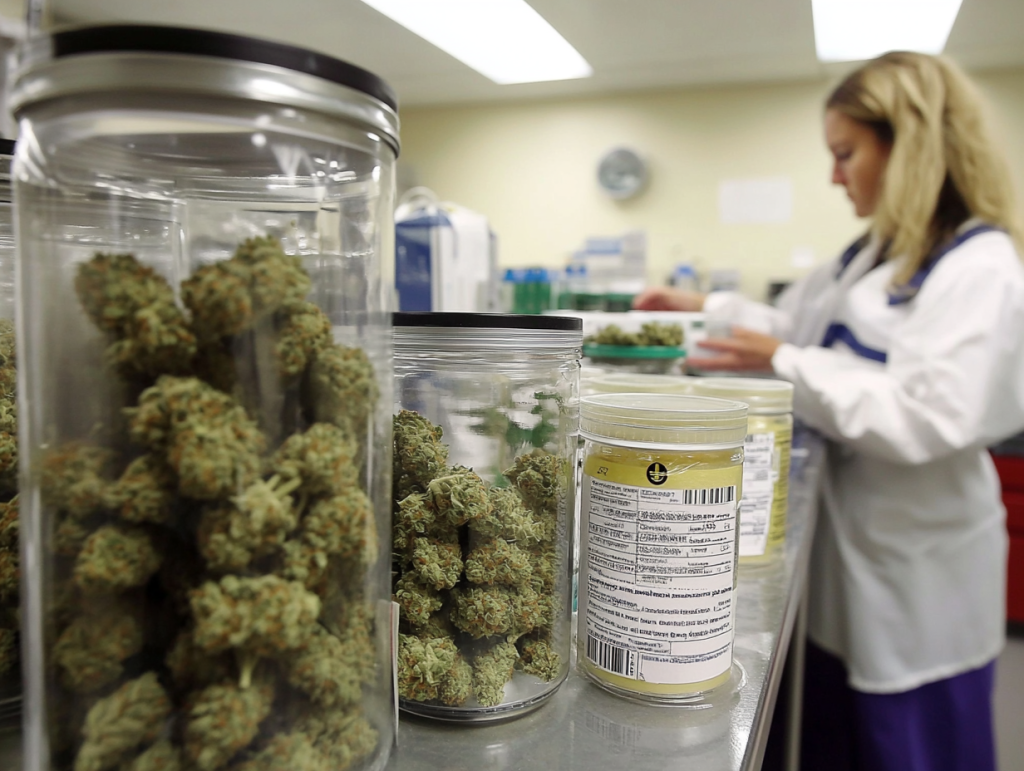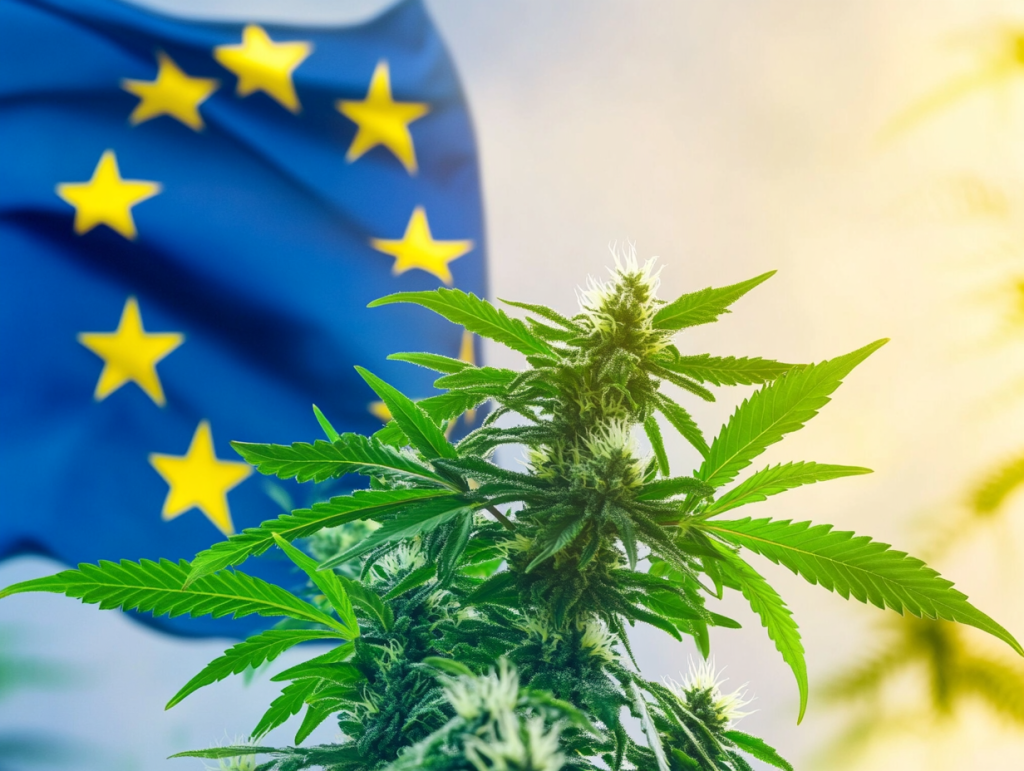Global Cannabis Market 2025: Nations on the Legalization Verge

A comprehensive report from Mercury News describes a remarkable change in the global cannabis business as countries take steps towards legalization in 2025.
The article points out that economic projections now predict record market expansion as governments rethink their cannabis laws.
Some nations that were strongly against the use of cannabis before are now contemplating changes to legitimize both medicinal and recreational uses.
Analysts discussed in the paper point out that regulatory changes not only are reshaping customer access but are generating enormous opportunities to invest as well.
With historical impediments such as outdated legal structures and banking restrictions being progressively eliminated, industry insiders are forecasting an explosion of innovation in all aspects of product development, research, and supply chain management.
The report also says that European, North American, and, increasingly, Latin American and Asian legalization trends are fueling new cross-border partnerships.
Stakeholders are emphasizing that although the speed of reform is to be encouraged, the sector continues to face issues of quality control, taxation, and protection of public health.
The detailed report is founded on real-time market data and projections, describing a healthy ecosystem in which entrepreneurialism and consumer demand propel a competitive environment.
As lawmakers balance social issues with economic interests, this new storyline is not only a reorientation of drug policy but a rebranding of cannabis as a cornerstone of a modern, profitable global business.
Source: Mercury News
European Consensus: Poll Shows Major Support for Legal Cannabis

A recent global poll published by cannabis Moment states that most Europeans support the legalisation of cannabis, a fundamental change in mentality throughout the entire continent.
The poll, sampling a cross-section of citizens from across many countries, shows that backing for cannabis reform now goes across cultural and political boundaries.
Participants cited potential benefits from enhanced medical research and reduced criminal justice costs to increased tax revenue and economic stimulus as top incentives for their legalization support.
The article describes how this increasing trend is affecting national debates, as several European governments are rethinking their cannabis policies in the face of overwhelming popular demand.
Proponents believe that legalization would reduce the black market while encouraging safer, regulated channels of distribution.
Besides, specialists point out that the results of the survey indicate increasing awareness of the therapeutic benefits of cannabis and its place in contemporary therapeutic practice.
Political leaders are now facing more pressure to modernize outdated regulatory systems and catch up with the public’s progressive mindset.
The story also discusses demographic differences in approval, where high levels of approval from both young voters and urban populations exist.
As European governments struggle with the balance between social freedoms, economic development, and public health, the report offers a close examination of changing cultural morals.
The poll results thus not only foresee potential legal changes but also mirror a broader rethinking of traditional drug policies throughout Europe, heralding an era of revolution in cannabis legislation and public opinion.
Source: Marijuana Moment
Cannabis by the Numbers: U.S. Acceptance Fuels Market Growth

Flowhub’s big-picture summary of cannabis industry trends provides a revealing snapshot of an industry in such swift evolution, propelled in large measure by increasing popularity in the United States.
The report compiles data in several market segments—from cultivation and distribution to consumer trend and retail performance—indicating strong growth in a sector once tightly restricted by prohibition.
In the US, changing public opinion and enlightened state legislation have dramatically opened up access to medical and recreational cannabis, increasing revenues each year and luring investor enthusiasm.
Highlight statistics show that as acceptance becomes more widespread, innovations in product development are on the rise, led by edibles, concentrates, and topicals.
The demographic trends are demonstrating that younger consumers are driving the market expansion, but older age groups are increasingly seeking out cannabis for wellness and pain management.
The report also finds large regional disparities; some states have extremely high per capita consumption, a trend explained by long-standing legalization drives and an entrenched market infrastructure. However, even as the upbeat growth trend persists, issues exist.
Compliance with regulations, quality control, and competitive forces still challenge industry participants, and many have invested heavily in cutting-edge technology and data analytics to stay ahead.
Ultimately, Flowhub’s statistical snapshot not only provides a snapshot of the cannabis industry today but also serves as a strategic guide for stakeholders looking to harness the revolutionary power of growing U.S. acceptance and its ripple across the global cannabis market.
Source: Flowhub
Cannabis Research: Unveiling Benefits for Neurological Disorders and Dermatitis

A new peer-reviewed article that was recently published on PubMed Central has added to the medical promise of cannabis, with findings that reach beyond neurological disease to include promising treatment in inflammatory dermatitis disorders.
The study uses strict experimental techniques—ranging from controlled lab tests to meticulous clinical observations—to analyze how cannabinoids interact with the human endocannabinoid system.
Researchers found that certain cannabinoids not only provide a cure for chronic pain and neurodegenerative disorders but also successfully regulate inflammatory cytokine production in skin cells.
This modulation appears to reduce inflammation, thereby removing symptoms most commonly associated with dermatitis.
The research indicates that topical cannabinoid preparations can improve skin barrier function and represent a valuable therapy for patients who have been insufficiently responsive to traditional treatments.
Furthermore, the study discusses interindividual response variability, and it may be that genetic and environmental differences require a more targeted treatment and dosing approach.
Although the results are encouraging, the authors call for additional clinical trials to further elucidate long-term effects and optimize therapies.
This in-depth study not only reaffirms the complex medicinal value of cannabis but also opens the door to groundbreaking treatments covering both neurological and dermatological disorders, which is a benchmark development in the changing face of cannabis medicine.
Source: NCBI
Endocannabinoids Boost Mental Alertness in Ultra-Endurance Athletes

A seminal paper released by Liebert Publishing has found strong evidence that circulating endocannabinoids are accountable for increasing mental alertness in ultra-endurance exercise, with implications extending well beyond recovery and performance.
The research focused on elite endurance athletes, comparing blood samples before and after long bouts of exercise in order to gauge the levels of endocannabinoids.
Findings revealed that there was a direct correlation between increased levels of endocannabinoids and improved cognitive function following and during intense exercise sessions.
Scientists used state-of-the-art analytical methods to quantify these naturally occurring substances, long associated with the body’s response to stress and pain.
Their research demonstrates that these molecules not only assist in the recovery process by reducing muscle inflammation and fatigue, but also with mental clarity—a consideration for athletes under extreme physical exertion.
The study findings show that endocannabinoids can act as a natural buffer to the cognitive disruption usually encountered with prolonged physical stress, opening up new avenues for rehabilitation regimes using cannabis-based medications.
This study pioneers sports medicine by suggesting the potential of utilizing the endocannabinoid system within the body to optimize bodily recuperation and cognitive performance.
As the medical cannabis debate continues to evolve, these results could fuel future therapies aimed at optimizing athletic endurance and recovery through safe, controlled use.
Overall, the study is a significant step forward in cannabis science, bridging the gap between recovery, mental awareness, and athletic performance.
Source: Liebertpub


